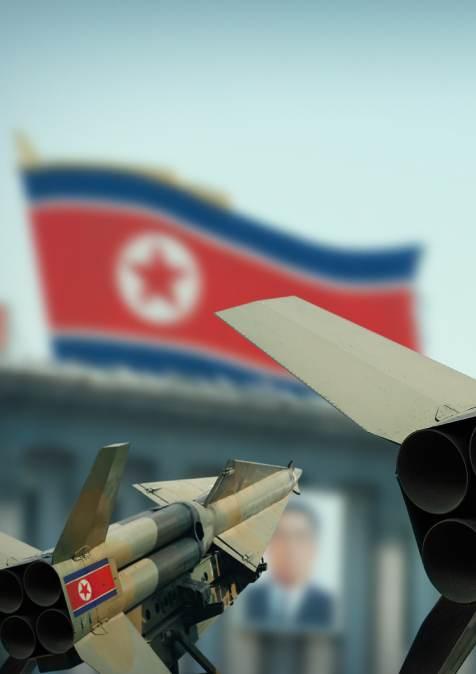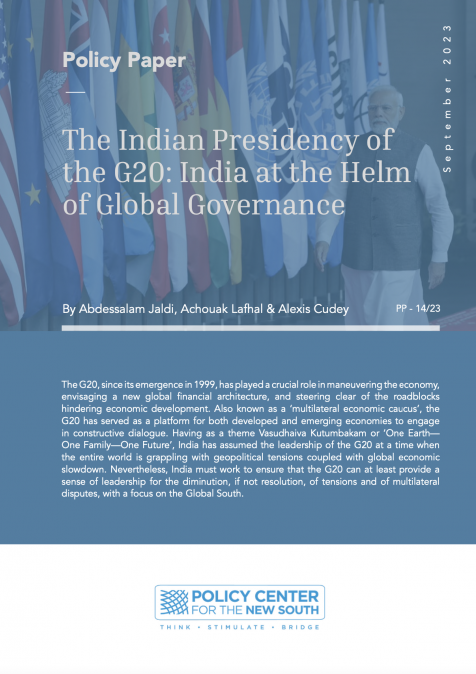Publications /
Opinion
Kim Ju-ae, supposed daughter of North Korean dictator Kim Jong-un, was introduced by her father for the first time to the world and 26.1 million citizens of the Democratic People’s Republic of Korea (DPRK) on November 19, 2022. Her first public appearance was unusual: at the launch of an intercontinental ballistic missile (ICBM) costing up to $10 million (Los Angeles Times, November 4, 2022). Unlike a DPRK spy satellite launched on May 30, 2023, which broke up in midair before reaching space, the ICBM took off as programmed, eventually splashing into the ocean.
Analyst Soo Kim noted in a report for the research group Rand Corp (December 12, 2022) that Kim was “acutely aware” that his country’s advancing nuclear and missile capabilities “are unnerving” Washington and Seoul, but that the allies seem to have reached an impasse over how to deal with the “recalcitrant and nuclear armed North Korea”, just like the United Nations, which has imposed seemingly forever sanctions against Pyongyang, but seems unable to pain Kim Jong-un enough for him to seek peaceful solutions for his starving nation. After each of the six nuclear weapons tests Pyongyang conducted between 2009 and 2016, the UN imposed increasingly restrictive sanctions on North Korea. To many Korean specialists and policymakers, Pyongyang has “already crossed the nuclear Rubicon”, as Soo Kim wrote: “having conditioned the international community to Kim’s missile provocations, the regime has consequently forced the globe to accept that North Korea’s nuclear weapon’s program is here to stay”.
On November 2, 2022, the regime fired 23 short-range, nuclear-capable ballistic missiles, designed to destroy South Korean or U.S. targets. The missiles included some surface-to-air missiles, and most likely a developmental Hwasong 17 ICBM as well, awesome firepower, never before tested by the regime in one day. Estimated costs for the fireworks, calculated Rand expert Bruce Bennet, were $50 million to $75 million, about the amount Pyongyang spent to import rice from China in 2019 to cover grain shortages that year. The following day, November 3, the North Koreans tested seven more missiles. North Korea is estimated to have about 1000 ballistic missiles.
Permanent Provocation
Attempts at diplomacy have not led to a significant reduction in the DPRK’s nuclear threat, says the Rand Corporation report, “nor a curbing of Kim’s appetite for nuclear blackmail”. In addition to its nuclear weapons, North Korea has amassed chemical, biological, and electromagnetic pulse weapons. It also created an active cyber-hacker force, revealed Rand. When the U.S. Indo-Pacific commander, John Aquilino reportedly warned that the U.S. would “immediately” shoot down a North Korean ICBM fired over the U.S. territory Guam or into the Pacific region (Rand Corp, March 14, 2023), Kim Jong-un responded that such an action “will be regarded as a clear declaration of war”. The North Korean ruler not only ignored the prohibition of all of North Korea’s ballistic missile tests by multiple UN Security Council resolutions, but if ever the regime should launch an ICBM in the general direction of the U.S. state of Hawaii, Washington could hardly hesitate to shoot down the potential aggressor.
What kind of warhead, if any, does that missile carry? Since he inherited power from his deceased father in 2011, Kim’s nation has found itself in isolation and economic stagnation. In comparison, the rise of South Korea into a developed country “could be called a miracle”, concluded El Mostafa Rezrazi, Professor of Crisis Management and Social Studies and a Senior Fellow at the Policy Center for the New South, and researcher Nouha Benjelloun Andaloussi, coordinator of the Korean Program at the African Center of Asian Studies, in their research paper on ‘The evolution of South Korea’s ODA strategy: The Moroccan Case’ (June, 2020). Since the Korean War (1950-1953), North Korea has seemingly pursued a repression and starvation model, whereas South Korea, its declared enemy, started in 1963 to help developing countries, first with American funds, then only a few years later, with its own means, programs, and schemes. Instead, the dilemma for the 41-year old dictator in the North has been how to ensure its security, while sustaining political isolation and control necessary for regime survival.
National tragedies have not deterred the regime from spreading its limited power and funds around the globe. A few years ago, the Washington Post asked “Are North Koreans fighting in Syria?” and felt “it is not as far-fetched as it sounds” (August 3, 2016). The Diplomat commented about a Cuba-North Korea connection (June 8, 2016). The Daily Telegraph suggested that North Korea was helping Iran with nuclear testing (January 24, 2007). Historians estimate that 3000 North Korean troops took part in the Angolan Civil war in the 1970s and 1980s, fighting against apartheid and repression. During those years Libya’s leader Muammar Gaddafi purchased significant amounts of North Korean arms, and Egypt’s President Hosni Mubarak visited Pyongyang at least four times. During the era of decolonization, the communist regime supported several countries governed by former liberation movements, including Namibia, Mozambique, and Zimbabwe. “Sanctioned and shunned” read the headline of a Voice of America text (March 22, 2017), “North Korea finds arms deals in Africa”. “Despite international sanctions, North Korea has found partners across Africa, willing to buy arms and make defense deals”, said the head of a UN panel of experts that investigated the transactions.
According to a 378-page UN Security Council report, published in March 5, 2019 (‘2019 final report of the UN Panel of Experts established pursuant to resolution 1874 (2009) investigating North Korean violations of UN sanctions”) North Korea has used a number of methods to avoid detection . The Democratic People’s Republic of Korea , states the UN Panel of Experts, (5 plus a coordinator) which investigated the evasion tactics of Pyongyang from February 2, 2018 to February 1, 2019 ,“continues to violate the arms embargo and has attempted to supply small arms and light weapons and other military equipment to Houthi rebels in Yemen, as well as to Libya and Sudan The report accused North Korea of violating a UN arms embargo while trying to sell “a wide range of military equipment to armed groups and governments in the Middle East and Africa”. The panel investigated involvement of the Democratic People’s Republic of Korea in goldmining in the Republic of Congo, the construction of a military camp in Sierra Leone. A North Korean military advisory group was observed in Angola, the provision of encrypted military communication detected in Eritrea.
The report added that Pyongyang was reportedly offering conventional arms and, in some cases, ballistic missiles, to armed groups in Yemen and Libya. The UN panel has written in December 2018 to the Ugandan government, demanding clarification following a media report alleging that North Korea had supplied small arms and light weapons to Uganda and has trained Ugandan Special Forces. At the end of March 2023, Burkina Faso announced (agenzianova.com, March, 30, 2023) the reopening of diplomatic relations with Pyongyang, including the revival of an “exemplary” arms trade. Hugh Griffiths, coordinator of the UN panel monitoring sanctions on North Korea, told Voice of America that these sanctions are being flouted in some parts of Africa. “North Korea generates revenue by supplying arms, military equipment, surface to air missiles, radar, MANPADS (portable air-defense systems), a wide variety of goods and services to African states”, he said, “and from this they derive significant amounts of foreign currency revenue for their own programs related to weapons of mass destruction. The UN report, by the way, found that Africa has the worst rate of nations reporting compliance with UN sanctions on North Korea, 11 of 54 countries”.
The Policy Center for the New South has never failed to analyze the obscure politics of Pyongyang, the ever-more urgent threats, which even irritated China, which shares a 1410 kilometer border with the North Koreans, or even Moscow, whose 17.5 km mutual border is symbolized by a Friendship Bridge. The Policy Center for the New South detailed “North Korea’s Business dealings” in a blog post (April 6, 2018), predicted (February 21, 2019) that it is “unlikely that North Korea will give up its nuclear weapons”, and wrote why Donald Trump failed in his negotiations with the other supreme leader and still declared (April 29, 2020) “I like him and he likes me”.
UN sanctions certainly drive North Korea towards more poverty and, possibly, political instability, since hunger may conquer fear and desperate people will offer their lives for the survival of others, their choices reduced to death by starvation or a bullet. The question: how does an impoverished nation pay for seemingly endless missile tests and the construction of sophisticated arms, including nuclear warheads and intercontinental missiles? Which nations, if not China or Russia, neighbors and allies, are advancing credits, or exchanging computer components and satellite technology for fish, cement, or coal?
“This is where sanctions-violating activities including North Korea’s recent foray into cyberspace and cryptocurrency hacking comes into play”, notes Soo Kim, Rand Corp. expert. “And of course, having willing partners in Beijing and Moscow aid in sanctions violations also helps the regime’s weapon development prosper”. On June 7 of this year, CNN’s Sean Lyngaas reported on a $35 million crypto heist from a prominent crypto currency service known as Atomic Wallet, based in Estonia. “North Korean hackers were likely behind the theft,” multiple crypto tracking experts told CNN. “North Korean hackers have stolen billions of dollars from banks and crypto currency over the last several years, providing a key source of revenue for the regime, confirm reports from the United Nations and private firms”. According to Elliptic, which conducted an analysis on behalf of the Japanese newspaper Nikkei, “North Korea has stolen a total of 2.3 billion dollars in crypto currency from business between 2017 and 2022”. About half of North Korea’s missile program “has been funded by cyberattacks and crypto currency theft, a White House official said last May,” 38north, a website specializing in Korean affairs, partnered by the Washington DC based think tank, Stimson Center, revealed (May 2, 2023).
Hyuk Kim, Research Fellow at the James Martin Center for Nonproliferation studies of the Middlebury Institute of International Studies in Monterrey, California, published at the Stimson’s Center’s department, dealing with Korean affairs (“38North”), his 10 page report (April 21, 2023), headlined ,”Beyond North Korea: possible sources of small arms and light weapons exports to Russia in 2022?”, suggesting that another source of income for North Korea, possibly for months or years to come, is small arms and light weapons (SALW), ordered by Moscow for its war in Ukraine. “The shortage of weapons in the conflict also links to the allegation that North Korea is covertly supplying artillery shells to Russia, although North Korea’s export of this war material is currently banned under UN Security Council resolutions, regardless who the importer may be. Russia is seemingly willing to ignore these sanctions…”. Hyuk though admits, UN trade database does not offer any indication that corroborate the alleged arms transfers to Russia by North Korea between 2022 and 2023, since Pyongyang hardly will confirm illicit arms deals to the UN. Kim Hyuk confirms, indeed, the data base, only shows that Poland is the sole country that traded SALW with North Korea in 2022. “The destructive deluge will hardly come to an end soon. The White House, reported AP News (August 1, 2023), revealed that “US intelligence officials have determined that Russian Defense Minister Sergei Shoigu (who visited Kim Jong-un in North Korea’s capital end of July, 2023) spoke …about increasing the sale of munitions to Moscow for its war in Ukraine”. Already in September 2022, the New York Times reported (September 5) that “according to US Intelligence Moscow’s purchase of millions of shells and rockets from North Korea is a sign that global sanctions have hampered the Russian military chains and forced Moscow to turn to pariah states for military supplies.”









